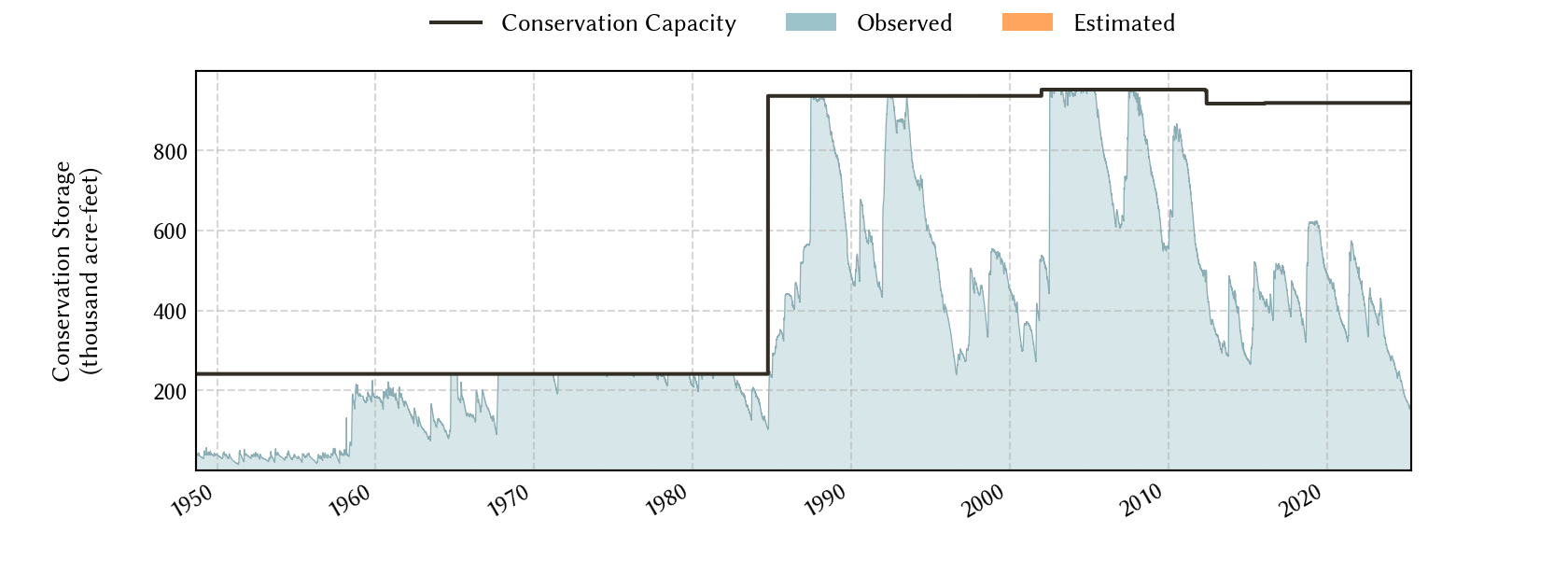CORPUS CHRISTI, Texas — As we mark 800 days under water restrictions, we kick off a new series called 'Water Watch'. Here we'll dive into the science of this historic water shortage.
"Yes, this is the longest we've been under water restrictions," Esteban Ramos, Water Resources Manager with Corpus Christi Water, says to his knowledge this is the longest we've been under water restrictions in the Corpus Christi.
800 Days: that's how long Corpus Christi Water customers have been under water restrictions as of August 22, 2024.
"We have to prepare for that. We have to work together for that, and that's what me and my group try to strive every day for," he says. That's more than two years of efforts to conserve water, only to see it continue to evaporate from our reservoirs.
HERE'S A TIMELIME:
- June 14th, 2022 the City of Corpus Christi enacted Stage 1 water restrictions. At the time, combined capacity was just over 40 percent, but City Manager Peter Zanoni said the decision was a proactive move to start conserving water.
- In January 2024 our combined capacity fell below 30 percent, but the city held off on moving to Stage 2.
- As the combined capacity continued to sink, the City enacted Stage 2 water restrictions on March 12, 2024.
"We're in Stage 2: every other week watering. But the potential could be that we do head to Stage 3, which would be a place where the City of Corpus Christi and this area has not been," Ramos warns.
So how did we get here?
"The rain hasn't fallen in the right spots for us. We're not necessarily in drought across the Coastal Bend, but where our watersheds are and for the north across the hill country, they are in drought," Tyler Castillo, Lead Meteorologist at THE National Weather Service Corpus christi Weather Forecast Office. He says that drought across the Nueces River Watershed has minimized the benefit from the few significant rain events we have had.
"We have had a lot of the soils, vegetation, the trees all suck up a lot of that moisture." He adds " it doesn't allow to filter into the aquifers and down the Nueces River, into our reservoirs."
Pair that with daily evaporation, fast-tracked by hot, dry summers and you get a combined capacity that hasn't been this low in decades.

Ramos says "at the end of the day, I want to make sure that there's water in a person's home so that they could wash their clothes, they can wash their dishes, they can take a shower, they can drink."
Next week we'll look more closely at the reservoirs that serve our water needs. I'll be following our water crisis each week. Follow along weekly and if you have a question you'd like me to answer in this series, send me an email at Stefanie.Lauber@KRISTV.com



